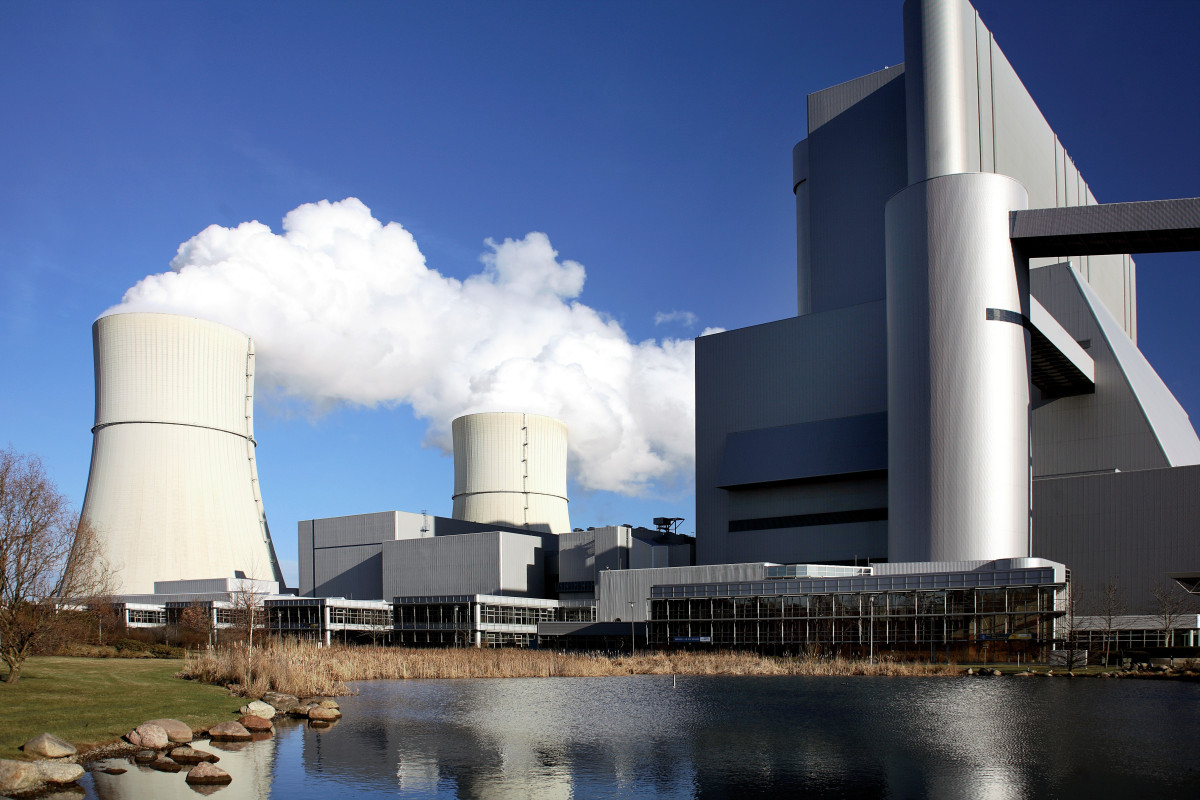EU commissioner backs eastern German coal region’s ambition to become European phase-out model

With a visit by EU commissioner Thierry Breton, the eastern German coal phase-out region Lusatia has launched its bid to become Europe’s first so-called Net Zero Valley (NZV) that hosts a fully climate-neutral local industry. “The EU Commission is ready to support this proposal,” Breton said at the event held at the Schwarze Pumpe coal plant on the border of the two eastern German states Brandenburg and Saxony. The EU’s internal market commissioner pointed out that Lusatia is the first region in Europe that could benefit from the novel NZV programme, which aims to bundle infrastructure development and funding to transform industrial regions to become net-zero and attract investment in future technologies.
“I’m confident that this is feasible and can be done soon,” Breton told journalists at the event. He stressed that Lusatia could serve as a prime example for an industrial transformation that “affects the entire continent,” not least because the region so far “has been 100 percent dependent on lignite” for its prosperity.
Breton said EU funding for the scheme, which is part of the bloc’s Net Zero Industry Act (NZIA), is in place and could help the coal mining region “do what needs to be done.” In particular, the NZV would mean “more subsidies for projects, more investment, easier licensing, infrastructure expansion, the creation of local training centres and more high-quality jobs.” Pointing at major investments in semiconductor manufacturing in Saxony’s capital Dresden and other future technology projects in the wider Lusatia region, the EU commissioner said creating a new foundation for an industry that fully runs on clean energy and manages its greenhouse gas emissions is within reach. “We need to deregulate and cut red tape” to implement the vision of a climate neutral industry after coal mining in Germany ends in 2038 at the very latest, he said.
A communal alliance of mayors in the region in March submitted its application to become the EU’s first NZV model region. In the context of its national coal phase-out law, the German government already earmarked more than 40 billions of euros in funding for managing the transition away from coal. The funds that are paid out over many years are supposed to serve an anchor for private investments by providing modern infrastructure, tax incentives, training programmes and other instruments to ensure the exit from the fossil fuel does not hurt the local economy. The rural region located between Berlin and Dresden also suffers from a shortage of skilled workers to fill positions in new industries and renewable power production that could become a greater problem for its economic prospects than the loss of its remaining coal industry jobs, researchers of the local Technical University of Cottbus-Senftenberg found earlier this year.
Breton’s visit to the eastern coal region ahead of the EU elections puts a spotlight on Germany’s economic slump linked to the energy crisis while pushing ahead with its energy transition. Robert Habeck in February commended the region’s representatives for making great efforts to become the first NZV, arguing that Lusatia “is shaping transformation in a very concrete way with its own ideas and projects” as a region “that is hit particularly hard by structural change.”
“Lusatia no longer will be a region in endless transition"
Conservative Christian Democrat (CDU) politician Christian Ehler, who represents the region in the European Parliament, said parts of the state aid scheme still subject to approval by the EU must get the green light before the upcoming elections in three eastern German states, Thuringia, Saxony, and Brandenburg in September this year to present voters a clear roadmap for the transition. “Lusatia no longer will be a region in endless transition, but we now have a clear vision for the future,” Ehler argued.
With a view to the far-right Alternative for Germany’s (AfD) very strong polling in each of the three eastern German states for the regional elections, he urged other parties to present a clear consensus and rally behind the climate neutral reset of Lusatia’s industry. “This process goes well beyond mere economic support,“ he cautioned. The AfD has made its opposition to the country’s planned 2038 coal exit a key battle ground on energy policy.
Energy company Leag, which operates the lignite mines and coal plants in the region, is still awaiting approval of about 1.75 billion euros in support to facilitate its own transition to climate neutrality through projects like hydrogen-fired power plants, large-scale battery storage or renewable energy expansion. Leag CEO Thorsten Kramer also stressed that the funding is needed soon to get ahead with “good ideas that otherwise lose their drive in the process.” After awaiting approval for about two years, creating an NZV in Lusatia could permanently increase the speed of change, Kramer argued. “Our business model will be obsolete today in 14 years,” the manager said, adding that the alternatives for the currently still 7 gigawatts of coal power would have to be fully established by that time. “Life in this region will change fundamentally,” he added.
Speaking for Saxony’s CDU-led state government, Oliver Schenk, the head of the state’s chancellery, said Lusatia would bear the brunt of Germany’s coal exit. “This is not being appreciated everywhere,” Schenk argued. With a view to plans by the government coalition of the Social Democrats (SPD), the Green Party and the pro-business Free Democrats (FDP), to pull the coal phase-out forward to “ideally” 2030, the state minister from Saxony said changing the current timetable would “create uncertainty” in the region that further adds to the existing transformation pressure. He said any plan to end coal-fired power production before 2038 would have to be fully backed up by securing an alternative energy supply and providing jobs and growth perspectives for the otherwise economically weak region. Relying on the German government alone would not be enough in this case, which is why Saxony supports the EU’s NZV scheme for Lusatia. “We cannot afford to make this a disappointment,” Schenk warned.


